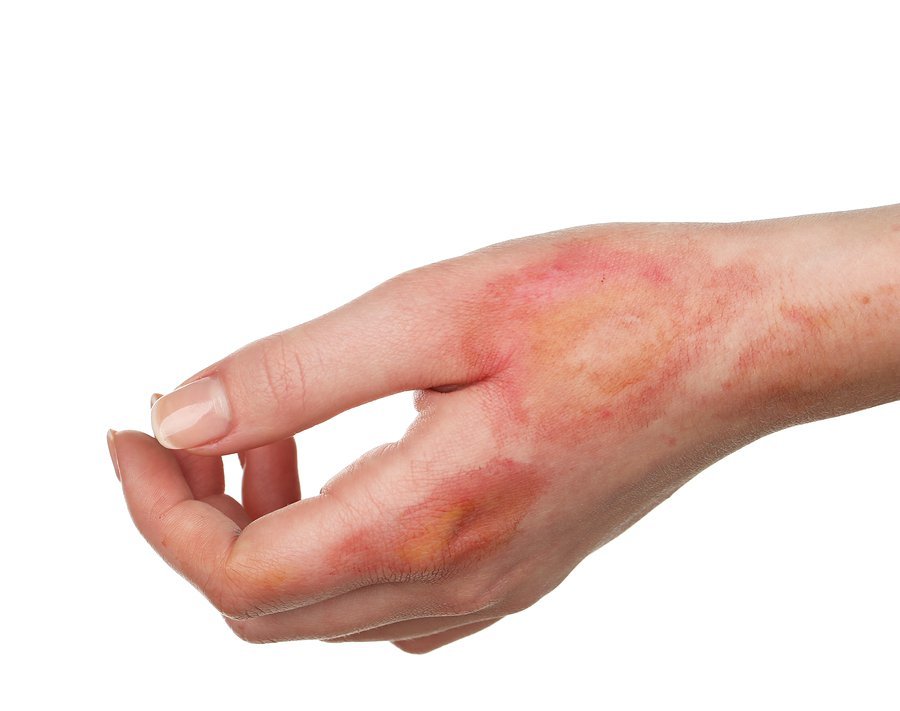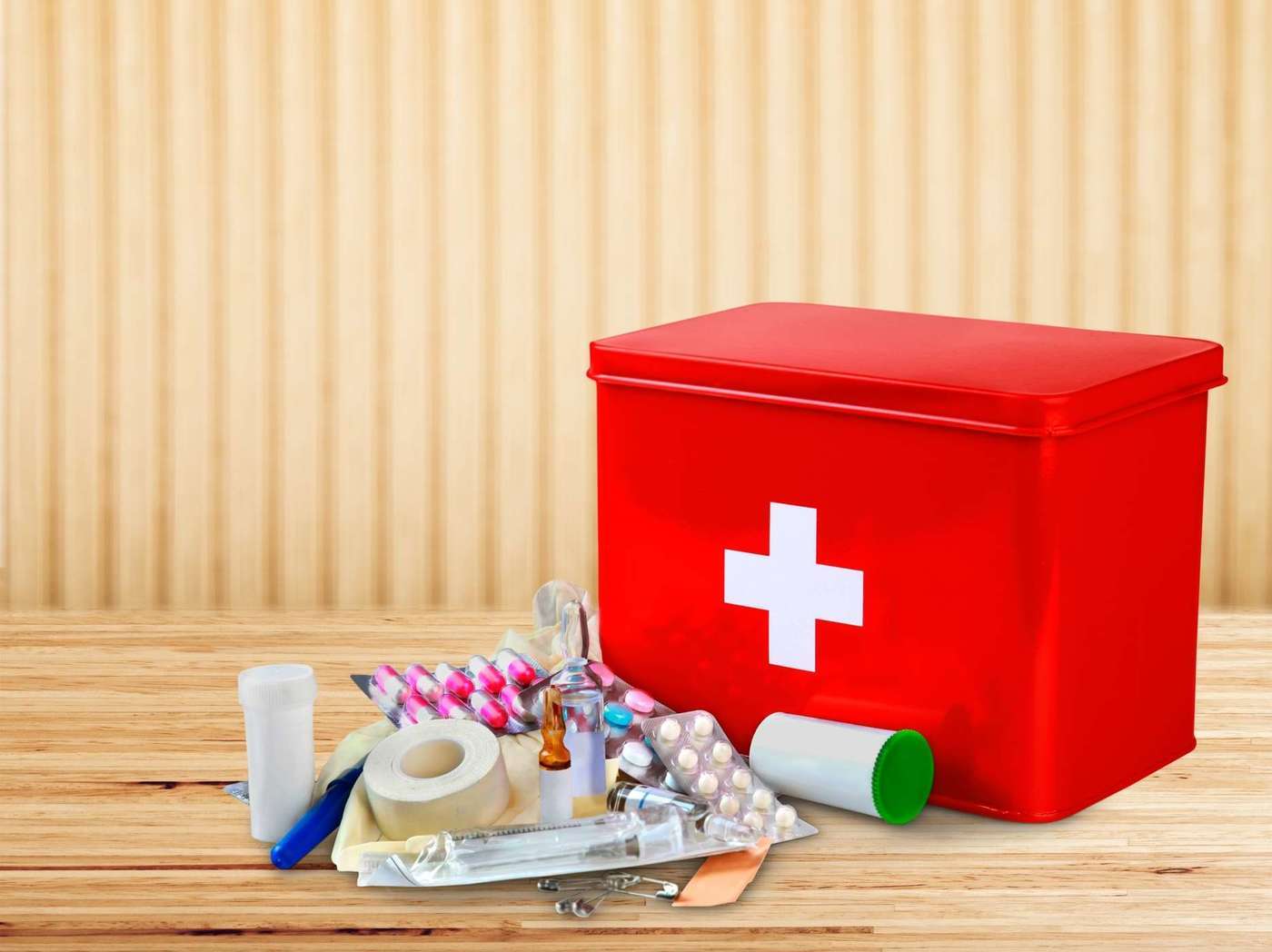Contents:
- Medical Video: How to Tell if a Lymph Is Swollen : Health Tips
- What is mumps or parotitis?
- Symptoms of parotitis in children and adults
- Causes of parotitis and modes of transmission
- Who is at risk of developing parotitis?
- Is mumps disease a dangerous disease?
- Various complications due to parotitis
- 1. Inflammation of the brain
- 2. Pancreatitis
- 3. Orchitis
- 4. Meningitis
- 5. Oophoritis and mastitis
- 6. Other complications
- When to go to the doctor?
- Do you need to see a specialist in treating mumps?
- How is mumps diagnosed?
- What are the parotitis drugs for children and adults?
- Treatment at home when you are sick of parotitis
- If I'm sick with mumps, what should be done so as not to transmit the virus to other people?
- How to avoid contracting mumps?
- 1. Obtain the MMR vaccine
- 2. Avoid contact or stay away from infected people
- 3. Maintain personal hygiene
Medical Video: How to Tell if a Lymph Is Swollen : Health Tips
Have you ever seen someone whose cheeks or jaw swell? Well, it could be that the person has parotitis or mumps. Any age can get this disease. However, it most often occurs in children. Come on, discuss more about diseases that make the cheeks or jaw swollen in the following review.
What is mumps or parotitis?
Mumps or parotitis is a condition of swollen salivary glands. This disease is one of the infectious diseases. The presence of a viral infection in a person's salivary glands is the cause of mumps. This salivary gland is also called parotid. It is located on the right and left side of the face, behind and below your ear.
The main function of the salivary gland is to produce saliva. Saliva it is then used to protect the teeth while helping to moisturize and soften food to more easily pass through the throat and be digested by the intestine.
When a virus paramyxovirus infect, salivary glands can swell and cause pain. Swelling of the gland can make the cheeks, jaw, or both also appear to swell. But swelling of the two jaws does not always occur together. In addition to pain when pressed, swelling will also feel soft and warm.
Symptoms of parotitis in children and adults
People infected with the virus that causes this parotitis will not feel pain immediately. It takes about two to four weeks for the virus to cause symptoms.
The symptoms of parotitis are very diverse. So, everyone may experience different symptoms of parotitis. In fact, there are patients who do not feel symptoms at all. That is why many people do not realize that they have been infected and will only realize it after the swelling occurs.
Some symptoms of infection in the salivary glands that might occur to you, include:
- The body gets tired easily
- Headache
- The body aches
- Loss of appetite
- Up and down fever. Initially the fever is low, then it will fever again until the body temperature reaches 39 ° Celsius. Then swelling of the salivary glands will occur a few days later, usually on the third day after infection.
Glandular swelling due to parotitis generally can last for 10 to 12 days. This parotitis or mumps will cause pain when swallowing, talking, chewing, or if the swollen part is pressed.
Symptoms of mumps in children and adults are almost the same. It's just that, symptoms in adults tend to be more severe. When observed, children tend to be fussy because of the pain of swelling of the neck due to parotitis.
Causes of parotitis and modes of transmission
The cause of mumps is a type of virus paramyxovirus. The spread and transmission of the virus that causes mumps is the same as flu, namely through saliva. When people are infected sneezing or cough, the virus will come out with droplets of saliva and be inhaled by healthy people. This is the most common viral transmission.
The virus that causes parotitis can also spread through tableware, pillows, clothing, or other objects and infect people who make contact with these objects. But, transmission by this method is rare. You need to know that viruses may be able to move to objects, but this parotitis virus will not be spread by animals.
Although contagious, this disease is not a disease that can spread quickly like measles or chicken pox. However, the more often and the closer you get in contact with people who are sick, the greater the risk of transmission.
There is a time span for the virus to cause infection and cause symptoms, which is around 14 to 18 days. The period of the spread of virus parotitis is highest in other people, which is two days before the appearance of symptoms and the first five days after the salivary glands begin to swell and become painful when pressed.
Who is at risk of developing parotitis?
This disease virus can appear at any time, but more often during the rainy season. Mumps can also affect anyone, but is generally more common in children. In addition, people with certain conditions are also very susceptible to this disease, such as:
- Did not get the vaccine or did not get the vaccine dose completely, ie the dose was given separately
- People who are around 2 to 12 years old
- Has a very low immune system, like have HIV / AIDS or cancer
- Traveling to high-risk areas is the spread of mumps-causing viruses
- Take chemotherapy or take oral steroids for more than two weeks
Is mumps disease a dangerous disease?
Parotitis or mumps is not a chronic disease. Most patients can recover fully within a few weeks. Generally, mumps will heal in 10 days. Even so, treatment from drugs is still needed to reduce symptoms. Home care will also make the body heal faster from infection.
Without treatment, this parotitis can spread and cause complications. In fact, it ends with permanent disability or death. Fortunately, complications are still rare.
Various complications due to parotitis
If left untreated, this parotitis can cause inflammation and swelling in several parts of the body, such as:
1. Inflammation of the brain
Mumps virus infection or parotitis can cause brain inflammation (encephalitis) This condition will cause symptoms of high fever, stiff neck, headache, nausea, and vomiting, drowsiness, and seizures. Usually the symptoms will begin in the first week after the salivary glands swell. This condition is very dangerous for the patient's life.
2. Pancreatitis
Viral infections can cause the pancreas to become inflamed or also called pancreatitis. Symptoms include symptoms of mumps accompanied by upper abdominal pain and nausea and vomiting.
3. Orchitis
Men who are already puberty can experience complications from swelling in the salivary glands. Swelling can attack one or two testicles (orchitis) It feels very painful, but rarely causes infertility in men.
4. Meningitis
Viral infections can spread through the bloodstream and infect membranes and fluid in the spinal cord. This condition is known as meningitis.
5. Oophoritis and mastitis
Women who are already puberty can experience complications of parotitis. Inflammation will spread to the ovary area (oophoritis) and breast (mastitis). However, this condition rarely affects women's fertility.
6. Other complications
Although rare, viral infections can spread to the cochlear area and can cause permanent hearing loss in one or both ears. In addition, mumps disease can increase the risk of pregnant women experiencing miscarriages compared to women who are healthy.
Reporting from Medicine Netparotitis can also cause complications such as inflammation of the joints (arthritis), infection of the heart muscle (myocardium), and conditions of nerve disorders, such as Guillain-Barré syndrome (autoimmune disease that attacks the body's nerves) or bell palsy (weakness of facial muscles).
When to go to the doctor?
If you suspect that you or your child has mumps, don't hesitate to see a doctor. Getting a handler from a doctor faster, means relieving symptoms, avoiding complications, preventing transmission of the virus to others, and accelerating the body to recover from disease.
Be aware of the following symptoms that indicate that a viral infection has spread to other body tissues, such as:
- Stiffness in the neck
- Experience seizures
- Severe sleepiness
- Very severe headache
- Fainted
- Abdominal pain, can indicate pancreatic problems in men or ovarian problems in women
- High fever accompanied by swelling in the testicles
Do you need to see a specialist in treating mumps?
For mumps, you may get medical treatment from a specialist, which is specifically dealing with infectious diseases. However, this disease can also be treated by a general practitioner. Meanwhile, for mumps or parotitis in children, it would be better if the examination is done by a pediatrician.
How is mumps diagnosed?
Just like other diseases, to get the right diagnosis the doctor must know clearly the cause of the swelling that occurs in the salivary glands. Maybe the patient will be advised to do a blood test to find out whether the swelling is caused by a type virus paramyxovirus or another virus. Then, the doctor will evaluate what symptoms are felt.
If swelling is not caused by a virus that causes parotitis, the condition can be transferred to another disease, such as:
- Blockage of salivary glands
- Tonsils (tonsillitis)
- Cancer of the salivary glands
- Sjögren's syndrome
- Side effects of using thiazide diuretic drugs
- Sarcoidosis
- Disorders or disorders of IgG-4
What are the parotitis drugs for children and adults?
There is no specific medicine to cure this disease. Fortunately, the treatment done is not complicated, as long as the virus has not spread and does not cause complications. The parotitis drug that is usually used is acetaminophen (tylenol) and ibuprofen (advil). For aspirin, it should not be used for patients under the age of 16 years. You can get these medicines easily at the pharmacy.
Giving mumps, can reduce body temperature so that it returns to normal and reduces pain in the cheeks or jaw due to swelling. It is not recommended to use antibiotics in treating mumps, because this disease is caused by a virus not a bacterium. Giving mumps medication to children or adults is no different, maybe only the dose needs to be adjusted.
For mumps or parotitis which has caused complications, using ordinary drugs will not have an effective healing effect. Need further treatment and treatment for complications. You may be advised to undergo hospitalization.
Treatment at home when you are sick of parotitis
Because mumps medicine is not available, the treatment will be focused on reducing symptoms and increasing the immune system. Home remedies that you can do include:
- Rest as much as possible. Not only for mumps, when you are sick, prioritize your body to rest until the symptoms disappear. It's best to avoid playing cellphones or watching TV even if you do it lying down. Even though the body is not active, these activities are not the meaning of real rest.
- copy drink water and keep the body hydrated. Symptoms of mumps do indeed cause pain when swallowing, but don't make you lazy to drink water. Avoid fruit juices that taste sour because they can irritate the salivary glands. So, water is the best choice.
- Besides drinking more, the body's nutrition must still be fulfilled. Choose foods that are easy to swallow and don't need a lot of chewing. For example, made soup or porridge, scrambled eggs, or mashed potatoes.
- Compress the swollen face with a soft towel previously dipped in warm water or cold water. This reduces pain in swelling.
If I'm sick with mumps, what should be done so as not to transmit the virus to other people?
If you or your child has mumps, getting treatment is necessary. In addition, avoid direct contact for long periods of time and get too close to other people, at least five days after the salivary glands begin to swell. Because at that time, the infectious virus was very active in other people.
It is recommended that you or your child take sick leave and sleep in a separate room with other healthy family members. Use a mask or tissue when sneezing or coughing, so that the virus doesn't spread easily.
How to avoid contracting mumps?
Many ways to avoid you from transmitting mumps. The following are ways you can keep your body healthy and avoid mumps.
1. Obtain the MMR vaccine
Preventing transmission of viral infections in the salivary glands can actually be done early, namely by administering the MMR (Measles, Mumps, Rubella) vaccine during infancy. This vaccine is given twice the dose, namely in children aged 12 to 15 months and ages 4 to 6 years. In Indonesia, the MMR vaccine is required to be given to children and has been scheduled for administration to immunization.
If someone does not get the full dose (or as determined), the risk of developing mumps in the future will increase. Because one dose of MMR vaccine is only able to protect and increase immunity against disease by 78 percent.
But, you need to know that this vaccine can cause side effects, such as a burning sensation in the area of the skin being injected, a mild fever, and a mild rash on the skin. Fever and rash on the skin will usually only occur in the first dose of the vaccine, which is five to 12 days after vaccination.
However, vaccines for children, adolescents, or adults are safe. Even before administering vaccines, the patient's health condition will be examined first. There are several things that must be considered before a vaccine is given, namely:
- Vaccines should not be given to people whose immune systems are very weak or have life-threatening allergic reactions to the vaccine content.
- The vaccine will be postponed to be given if you are seriously ill, pregnant, or planning a pregnancy for the next four months. For mild flu, vaccines can still be given. Vaccination will be done when the body has recovered or after giving birth.
2. Avoid contact or stay away from infected people
Giving vaccines is effective, but does not apply to everyone. There are people who remain infected with the disease even though they have vaccinated. However, the symptoms will not be as severe as those who do not get vaccinated.
When there are family or friends affected by parotitis, you should keep yourself or your child away from that person. Because the virus that causes mumps can spread through droplets of saliva when the patient sneezes or coughs. In addition, do not use the same cutlery or avoid sharing the same food or drink with the patient.
3. Maintain personal hygiene
The patient's saliva droplets can hit the surrounding objects or stick to the hands and move to toys, tables or door handles. To be clean of viruses, always prioritize for washing hands with soap and rinse thoroughly with running water.












